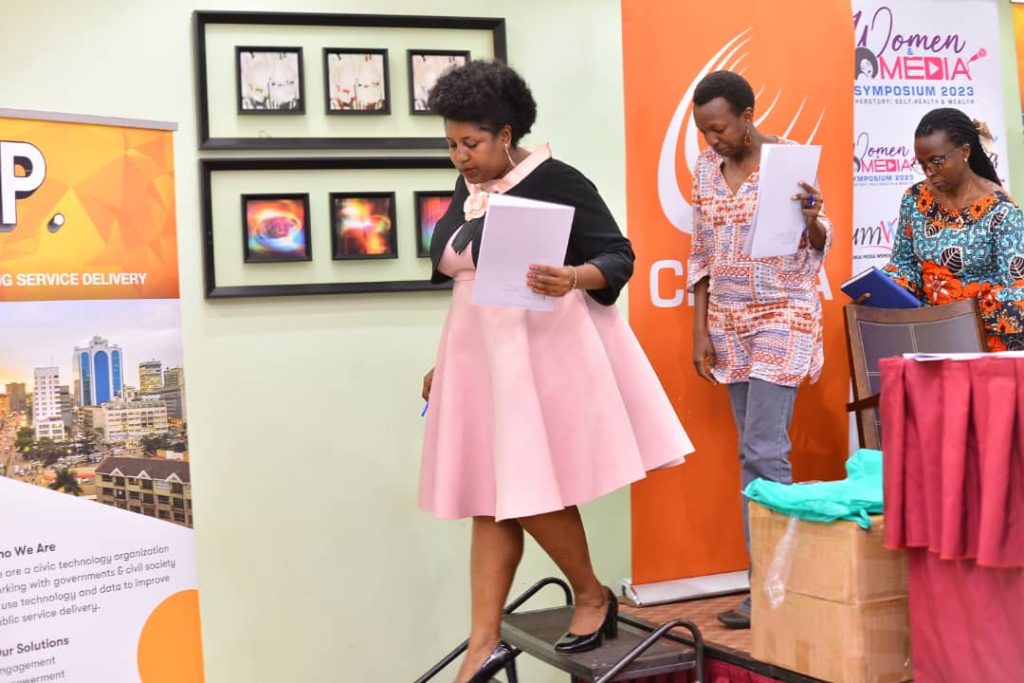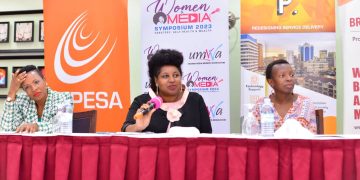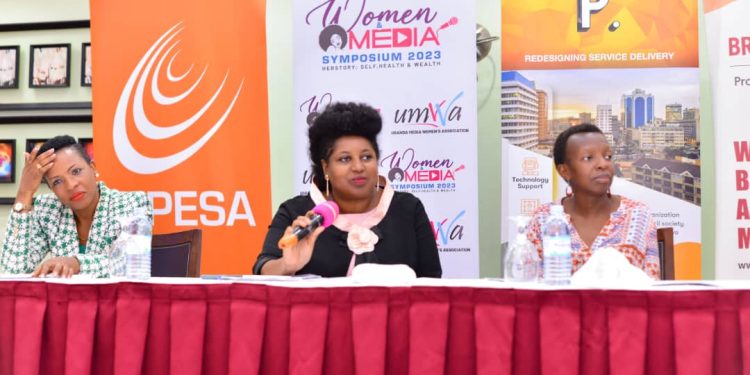Patricia K. Litho (PhD), the Board Chair of Uganda Media Women’s Association Association (UMWA) says women have to work with men because the issues that they complain about are relational.
She was speaking last Friday during the Women and Media Symposium held at Imperial Royale Hotel, Kampala.
“Women don’t work in a vacuum. We have to work with men. How do we relate with men? How do they treat us? It is about equity and fair treatment.”
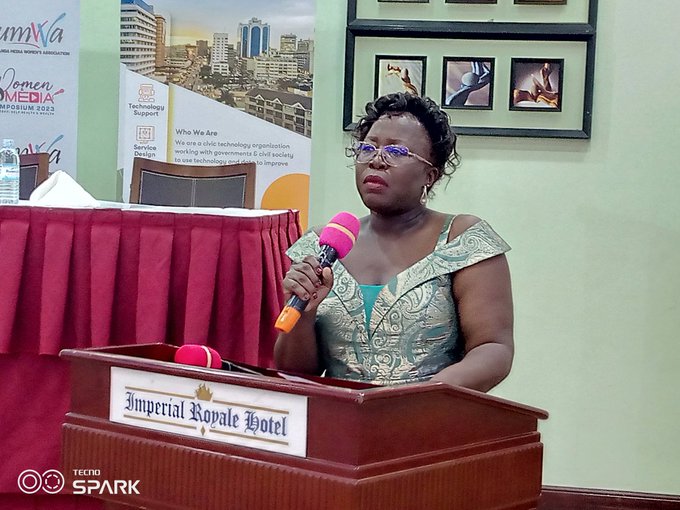
Litho, a Communication, Media & Gender Trainer and Researcher, says that instead of isolating women and trying to convert them alone, they need to speak the same language with the men on issues such as fair treatment, equity, sharing spaces etc.
“We are here to celebrate women because lots of times we forget to thank ourselves or even pat ourselves on the back for everything we do. The association exists to speak for the voiceless. Women in the media have done so much as mothers, leaders etc. Many times, we are nowhere to be seen,” she noted.
She added: “As women in the media, we should fully utilize this space that we have to empower fellow women but also partner with our counterparts to bring about the change we need.”
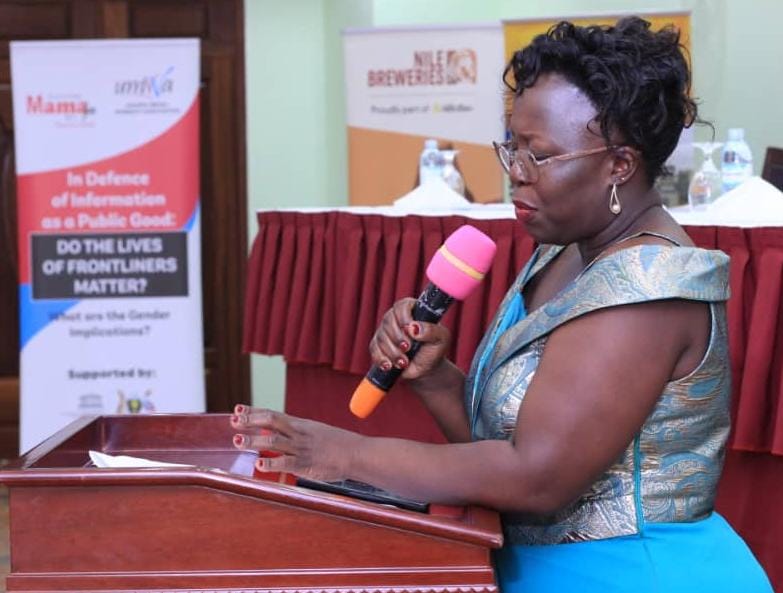
Gender and cyber violence
According to her, when women journalists are connected to the digital world, they get themselves exposed to cyber violence that deters them from digital participation in political, social, and cultural life hence self-censorship.
In her keynote address, Christine Butegwa, a Seasoned Gender and Social Development Expert and Founder of Jabali Consulting Limited, said Gender-Based Violence (GBV) limits women’s participation in the digital space.
“There is a need to adopt policies on zero tolerance of online violence. We need to change the narrative that women are only consumers of digital content but are also producers,” she stated.
According to her, Gender-Based Violence hinders women’s participation in online spaces because “we lack zero-tolerance policies to online violence”.
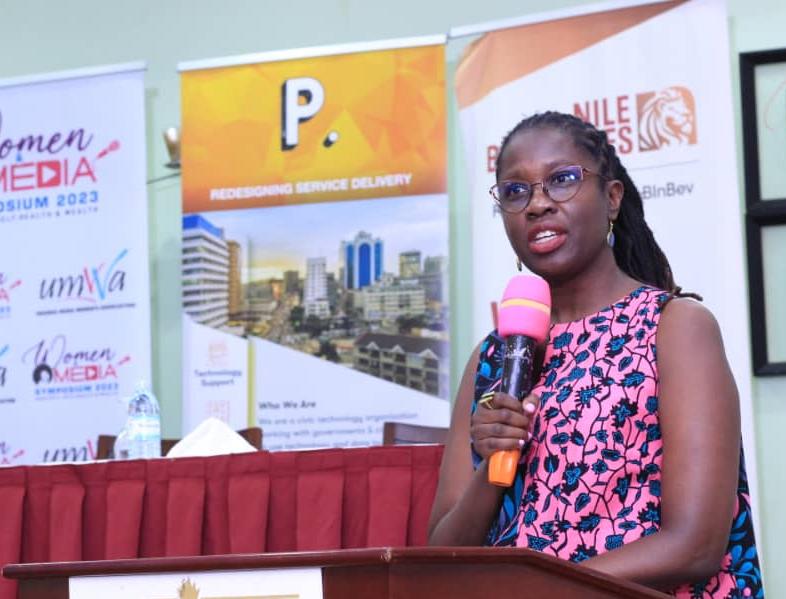
Butegwa highlighted strategies to increase women’s involvement in the digital space including gender parity in corporate boards and leadership.
“We need to challenge the narrative that women are only consumers but not producers in the digital space, which is the next frontier of storytelling.”
Bonnita Nyamwire, Co-Director, Research Department Pollicy, said media women should embrace and better skills in content generation for the new media.
“Pollicy has a grant for online bloggers but very few women journalists apply for it. Let us use such opportunities to make some money,” she noted.
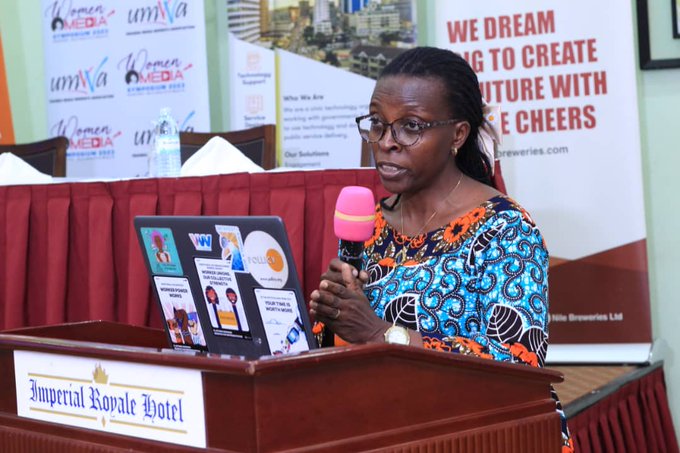
As a solution, Carol Beyanga, the Head of Partnerships, Monetization and Mentorship at Nation Media Group, suggested having more women in leadership positions.
“Women are not yet in top management positions. Let us push for more women in management positions because I have observed women are more people-oriented. We can support women in media who are interested in taking up such positions through mentorship and coaching,” she observed.
She said, for example, the issue of sexual harassment would be different if there were more women at the top.
“Things like maternity leave, supporting women with young children…many leave because of these things. I had even thought of leaving Daily Monitor thrice because of children. This a real issue for women to balance between working late and the family at home.”
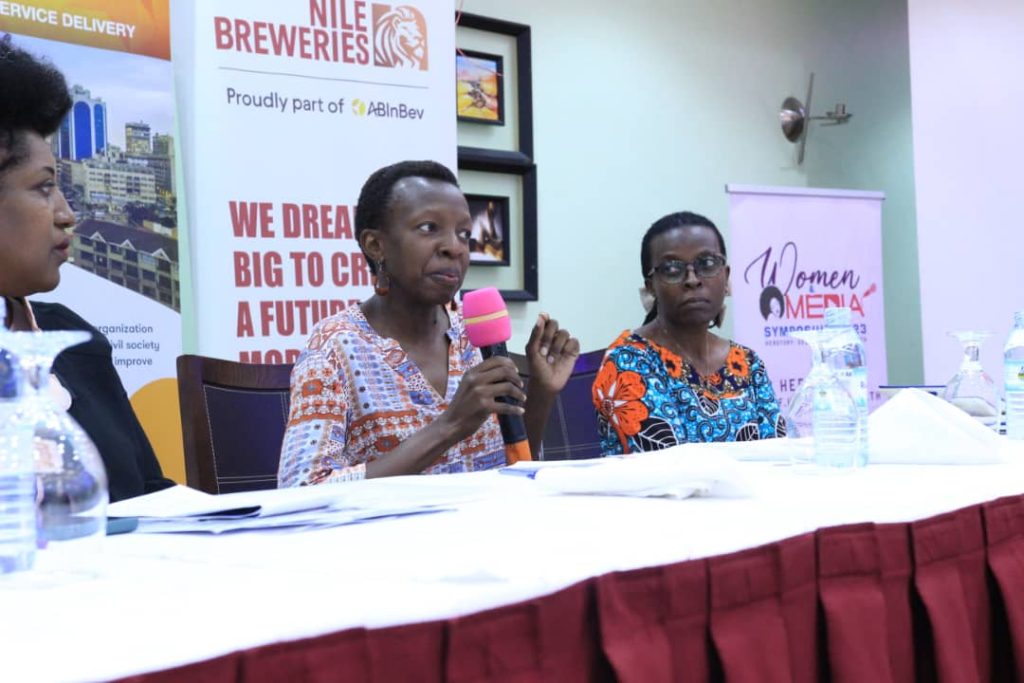
To her, more men who are gender-sensitive will make decisions that encourage women to stay in the media.
“If we had more women at a higher rank, many things would be different. I believe there have been strides and I’m proud of how far we have come. We still have some way to go.”
Women and digital space
Sarah Kagingo, the Chief Executive Officer of SoftPower Communications, encouraged women to tap into their entrepreneurial side and make use of social media because there are women out there who have grown their businesses by utilizing it.
She added that it’s important for women to find their niche and then strive to perfect their craft by so doing they will be able to afford a comfortable life for their families.
“Digital space has provided opportunities to many of us who are tech-savvy and social media-savvy. Utilise these platforms for interviews, grow your brands and do research.”
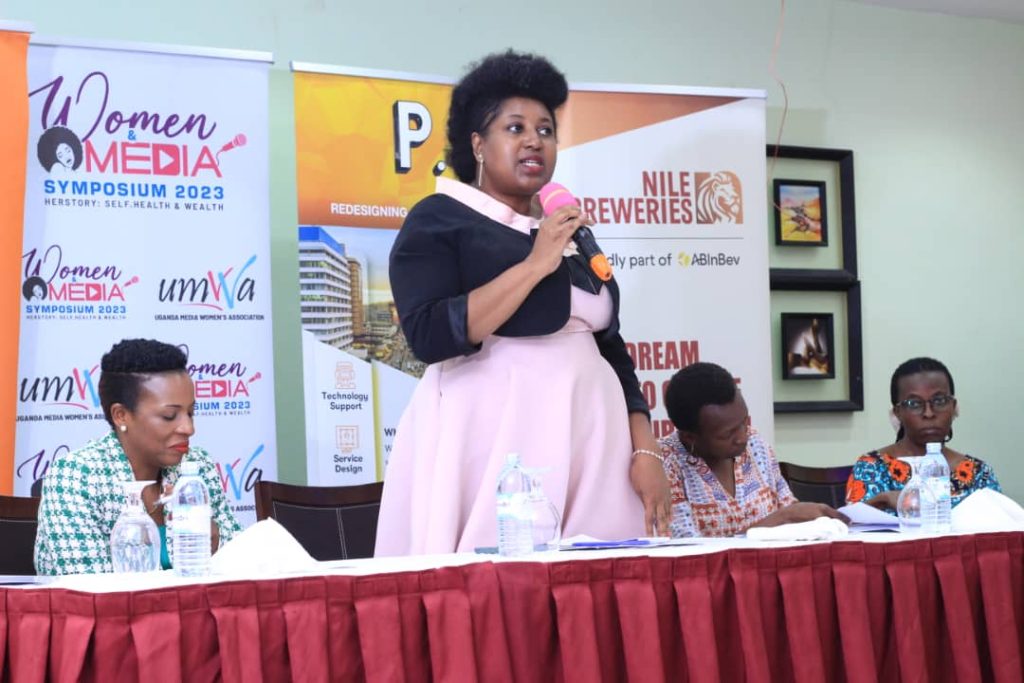
She lauded the Private Sector Foundation Uganda (PSFU) for its initiative dubbed “Women Katale” which is growing into an online market.
“We really must act purposefully on those digital platforms. We grow from not only reporting for media houses but also owning these platforms and becoming CEOs.”
She shared her personal experience and how she set out to occupy that space and contribute to positive storytelling about Uganda.
“When I started SoftPower News, I was very scared. I had left employment. Our first story had only two views for an entire week. It was discouraging but I was determined. Seven years later, we have remained resilient.”
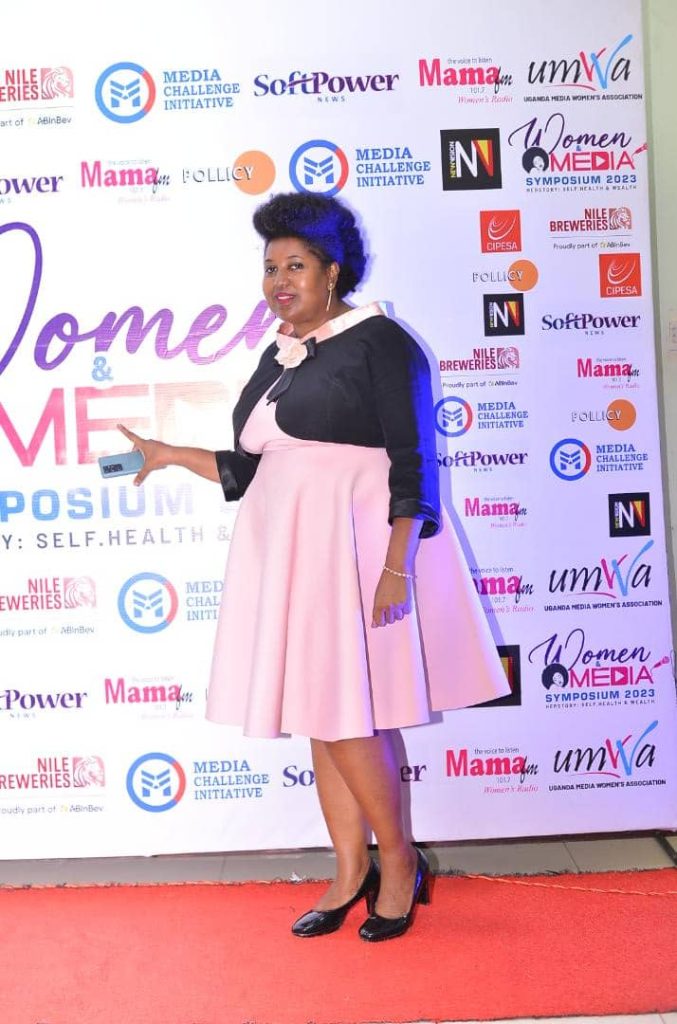
Unbalanced Salary Scale
According to Kagingo, the challenge is that what affects women in media affects the rest of the country.
She said the national broadcasters board has been silent about the discussion regarding the salary scale for women in the media industry.
“Every media house minds its own business. I have always wondered about brown envelopes given to journalists. How do we resolve it because journalists are generally paid very low and it’s worse for women in media? These are things we don’t talk about and it should start now,” she stated.
She said these are things grumbled about but “if you grumble a lot, your contract may not be renewed”.
Speaking on the same subject, Carol Beyanga, the Head of Partnerships, Monetization and Mentorship at Nation Media Group, said one of the reasons that women leave the media industry is because of the paycheck.
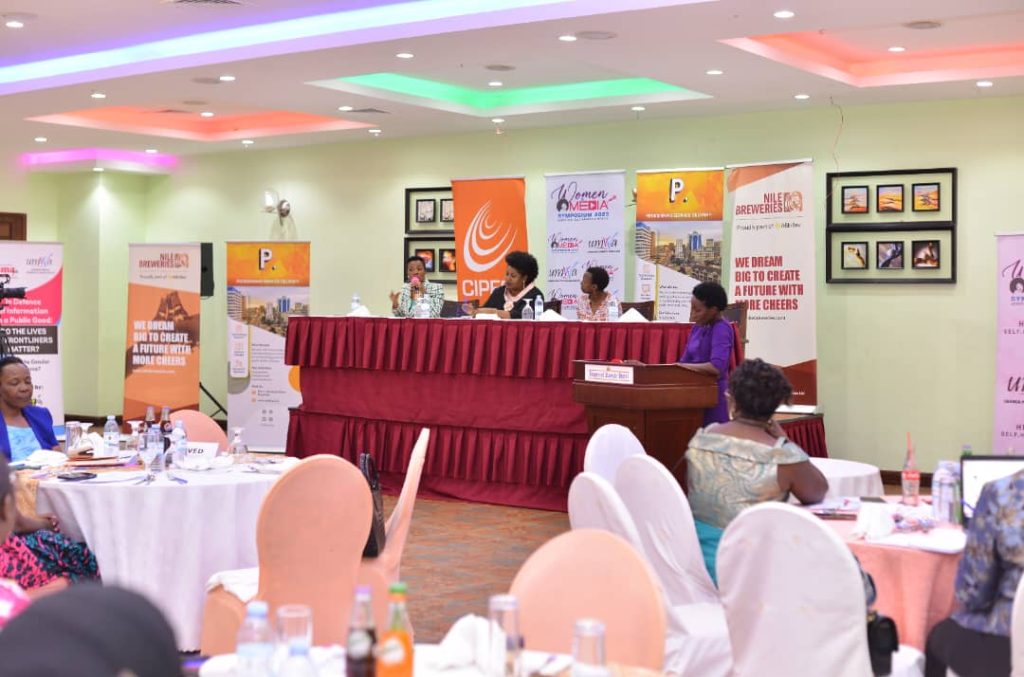
“Journalism is not as well paying as other professions. The time, money and years we put in may not be worth it. Women, generally, are still not paid well.”
She argued that this is not because women don’t work hard or are not skilled. “We do a great job but are taken advantage of.”
According to her, men push and demand more pay but women assume they should do softer roles and leave difficult bits which are paid more.
“This is still a discussion we need to have. More needs to be done.”
Where is the money for women in media?
Dr Ruth Aisha Biyinzika Kasolo, the Project Director at Private Sector Foundation Uganda (PSFU), says there are many opportunities for women out there.
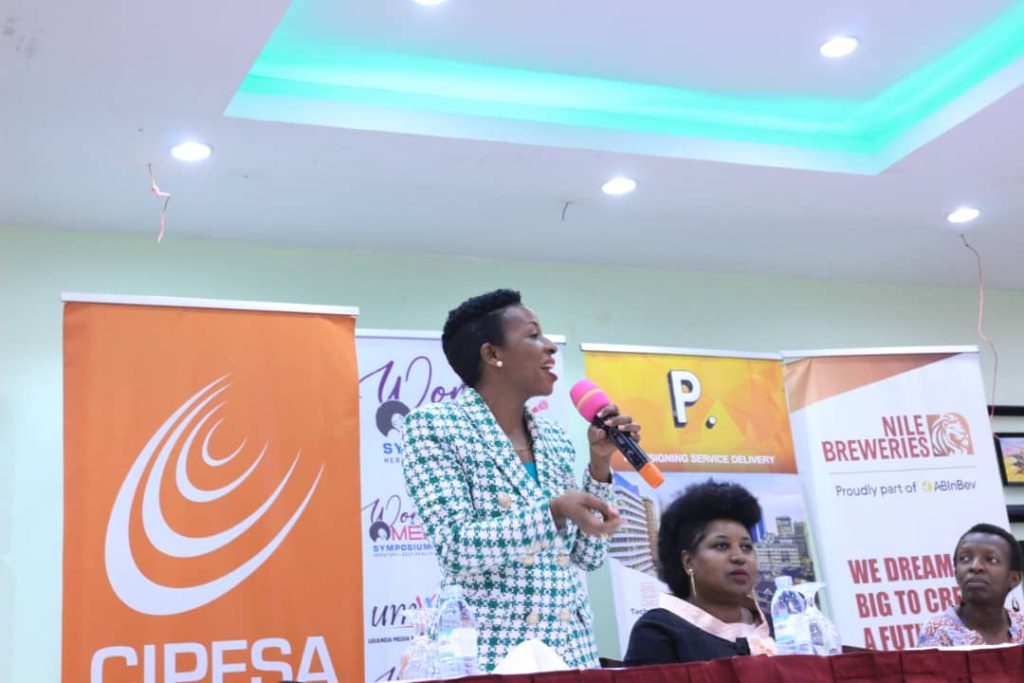
“As you cover the event, think about yourself and how you can tap into the next opportunity,” she stated.
According to her, journalists are the wealthiest people because they have contacts and can easily access other entrepreneurs.
“Journalists are the wealthiest people I know, why? They have the contacts in this country which they can use to conduct business bedsides reporting.”
She added: “If you are passionate about something, find out how you can earn from it. Jobs are okay but they might not be able to fully provide for you otherwise you will die of poverty.”
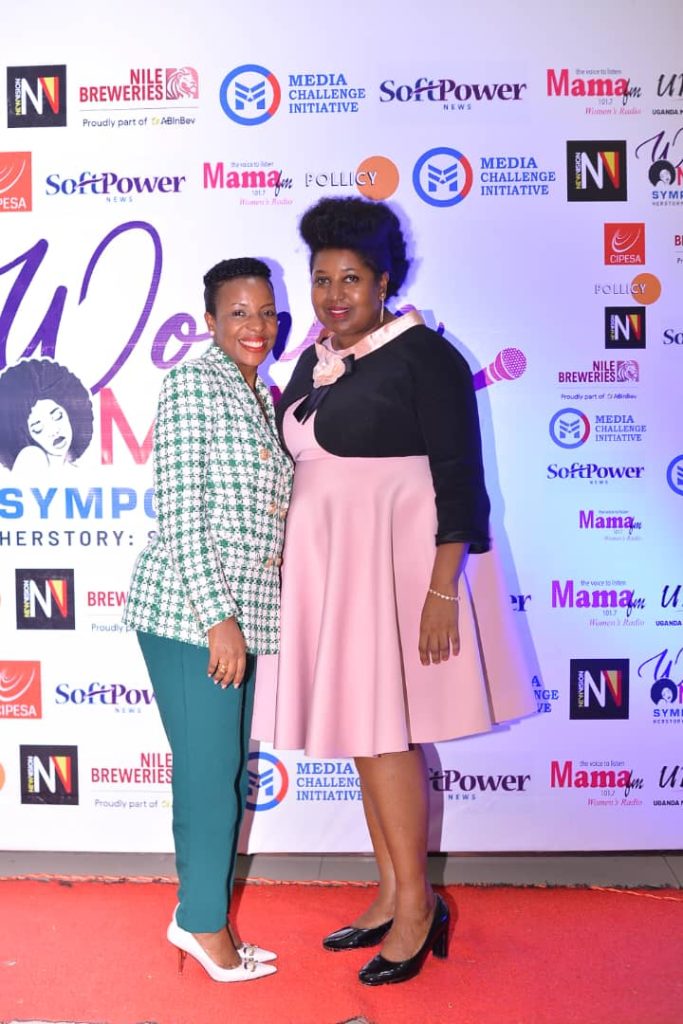
She cited several government programmes including those offered by PSFU that can help support women’s dreams and talents financially.
“Government has the money for women for the next five years through PSFU and the Ministry of Gender. Apply for these loans. PSFU has a programme to help women acquire technical skills.”
To her, most of the time, the biggest challenge women face is finance.
“Don’t just do journalism. You have other skills. Go digital (social media). Money is not in salaries.”
